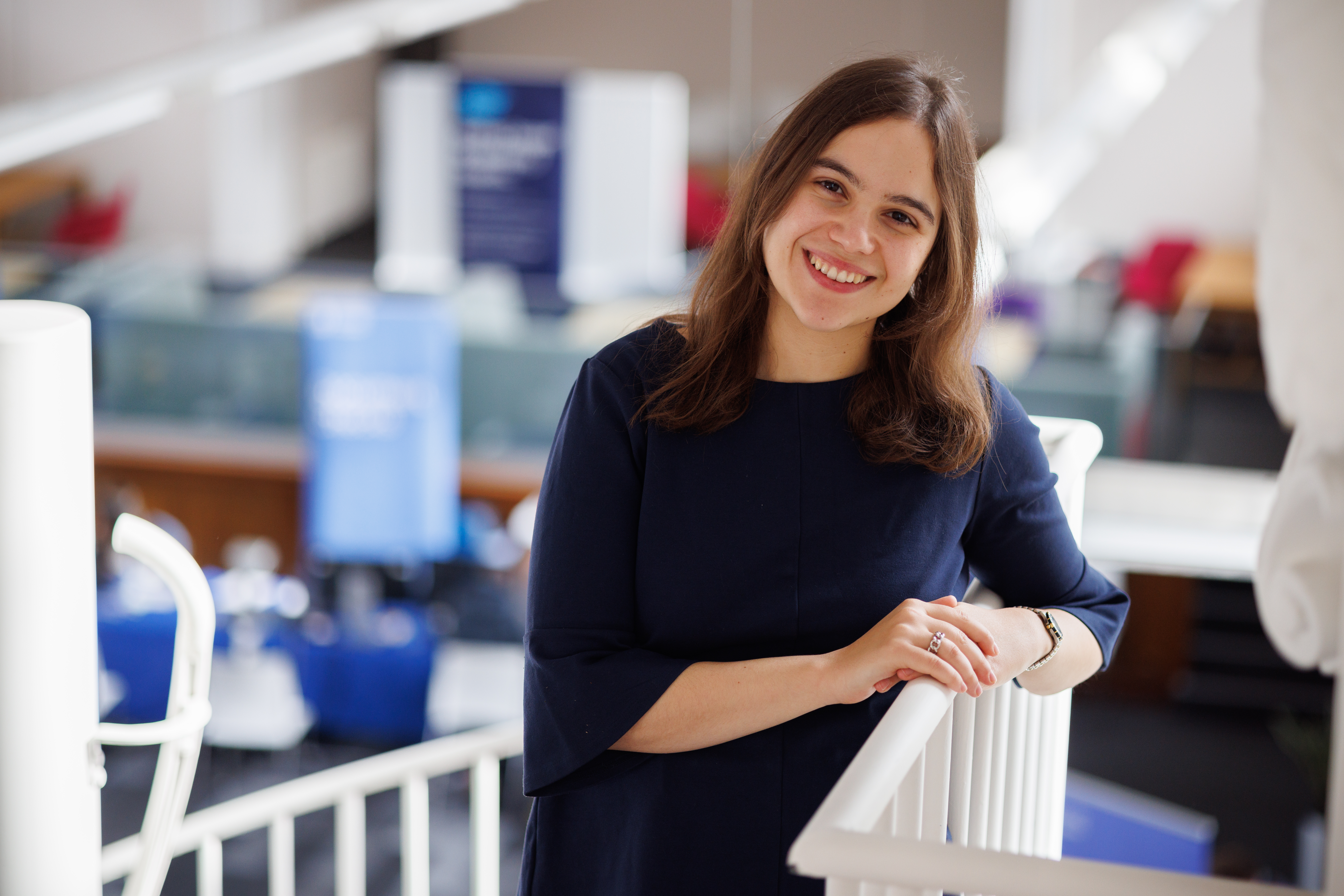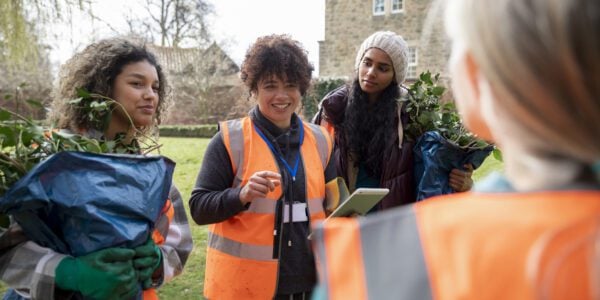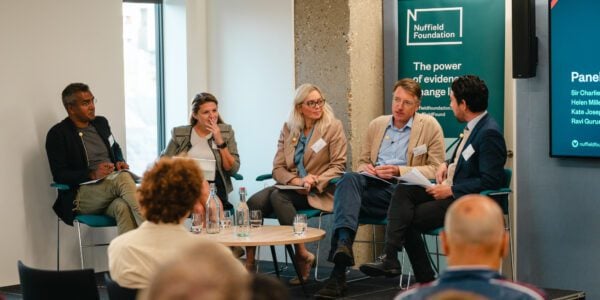PhD student Katerina Mentzou sheds light on the application process, writing briefings and her broader exposure to Parliament.
Katerina successfully applied to the Nuffield Fellowship scheme in 2022. The Fellowships provide later-stage or recently graduated PhD students with the opportunity to work at the Parliamentary Office of Science and Technology (POST). Fellows are asked to produce briefing material for MPs and Peers on a specific topic area that is on the parliamentary agenda. Some Fellows also assist with Select Committee Inquiries or events.
You can find more information on Nuffield POST Fellowships here.
What interested you about doing a POST fellowship and how did you find the application process?
I came across Nuffield POST Fellowships through Parliament’s Knowledge Exchange Unit. What really caught my eye was its goal to bridge the gap between academic research and policy. Initially, I wasn’t sure the Fellowship was the right opportunity for me, but I decided to apply because it seemed like an excellent learning opportunity.
The first stage of the application process involved writing a short briefing on a topic that would be of interest to parliamentarians which I found a fun challenge. Candidates are required to choose a subject that sits outside the scope of their PhD specialism since Fellows are expected to work on research areas that are a current priority for Parliament.
Overall, I found the application process of the Nuffield POST Fellowship very inclusive. The online guidance was informative, and the anonymous, skills-based process played a key role in my decision to apply.

What was your subject focus for your Fellowship and what was it like to write a POSTnote?
The topic I was asked to research was Problem-Solving Courts (PSC) in England and Wales. PSC is a problem-solving approach to address the underlying factors that contribute to re-offending. My POSTnote outlines the various elements of PSC and the opportunities and challenges to implementation across England and Wales.
One of the highlights of the research process was conducting interviews with stakeholders from a range of backgrounds. The interviews helped me to contextualise the existing literature and explore different perspectives on the topic.
The write-up of a POSTnote itself is different to how you would write in academia. Conducting research on an unfamiliar topic with time constraints can seem a little daunting at first but in the end, it’s rewarding to see your work disseminated across Parliament. The process meant I had to translate my research skills into a dynamic policy context. My writing, for instance, had to align with POST’s commitment to impartiality and pragmatism.
Can you tell us more about your wider experience of working in Parliament and the opportunities it offered you?
Working within Westminster meant I was immersed in the world of policymaking. The POST team are responsible for keeping decision-makers up to date and I was able to see first-hand how research was gathered and communicated to MPs and Peers and how it shaped policy.
To help us make the most of our time during our Fellowship, I was able to attend several informative training sessions on policy writing and career development. I was able to build my network and exchange ideas with colleagues across the Parliamentary Estate.
I also had the chance to assist with a select committee inquiry and conducted some scoping work for the upcoming POSTnote on prison populations. I would describe my time at Parliament as incredibly fulfilling.
What new skills or knowledge did you gain during the fellowships?
Honestly, prior to my fellowship, my knowledge of social policy and the mechanisms of Parliament were limited. In just three months, I had developed a much more in-depth understanding alongside a wide range of new skills. These included writing policy briefings, effectively communicating research findings and conducting scoping work, all of which have proven to be invaluable.
I’m looking forward to putting what I learned into practice both in my current research and wherever my future takes me. I am now feeling more confident in communicating my work to a non-expert audience and in looking for opportunities for research collaboration outside of my PhD specialism.
Working within Westminster meant I was immersed in the world of policymaking…I would describe my time at Parliament as incredibly fulfilling.
What was your favourite part of your fellowship?
Being a fellow at POST was an incredibly really rewarding and worthwhile experience. The UK Parliament is a truly unique and dynamic workplace. There were always opportunities to learn outside of your core Parliamentary responsibilities too; I was able to watch various debates and committee hearings taking place in both the House of Commons and the House of Lords. I even attended Prime Minister’s Questions.
Parliament has a rich history that I was keen to explore. I visited the archives in the Victoria Tower and took part in art tours of the Palace of Westminster. as well as attend the Prime Minister’s Questions. I also had the opportunity to learn about the colourful history of the UK Parliament. A highlight has definitely been visiting the archives in the Victoria Tower and participating in art tours of Palace of Westminster. I felt honoured to work in such an iconic place.
Do you have any advice for future POST fellows?
My advice to future POST fellows is to try to make the most of what the UK Parliament has to offer!
What are you doing now?
I’m currently finishing my Psychology PhD at the University of Dundee. My thesis explores interdisciplinary perspectives from philosophy, developmental psychology and sociology to gain conceptual insights into the experience of selfhood in dementia.
The Foundation funds multiple Fellows a year. Applications open in autumn for one month. Visit our application page to see when the deadline is.









